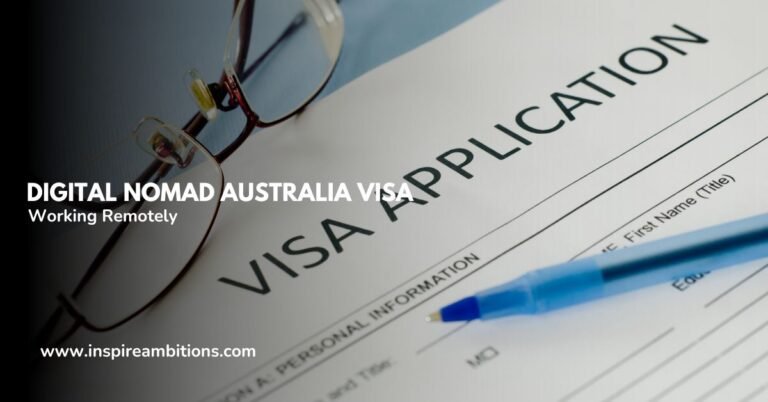South Korea Visa Requirements for Indian Citizens – Essential Guide for Travellers
Travelling from India to South Korea is an adventure waiting to happen, but before you pack your bags, there’s something important you’ll need – a visa!
Whether you’re planning a holiday or business trip or want to study, South Korean visas are a must for Indian citizens.
Visas can seem confusing, but don’t worry; you’re not alone. Getting a visa involves some straightforward steps. First off, you’ll need a valid Indian passport, and it should be good for at least 6 more months.
Remember to have a recent passport-size photo of yourself, too. If you’re going to see the sights or visit family, a tourist visa will do, but this only lets you stay for a short time. For those aiming to learn or work, different types of visas are required. Make sure you have proof that you’ve got enough money for your stay—South Korea wants to know you can take care of yourself during your visit.
Next, if you’re looking at a business venture or hoping to hit the books, the requirements might change a bit. Keep in mind that for any visa, you’ll have to fill out an application form. Do this carefully in block letters, and use a blue or black pen. Double-checking everything can be a total game-changer and save you time. Now, feeling ready? South Korea awaits!
Eligibility and Types of South Korean Visas
When it’s about venturing out to explore the cultural richness of South Korea or engaging in business activities, knowing the right visa to apply for is crucial. Your eligibility depends on the purpose of your visit and the duration you intend to stay.
Tourist Visa and Business Visa
South Korea spoils you with options, and they have specific visas tailored for tourists and business professionals.
Tourist Visa (C-3)
- Duration: Up to 90 days
- Entries: Single-entry 或者 double-entry
- You need: A valid passport and an itinerary
For a more extended holiday or multiple visits, the multiple-entry visa is an option for those who qualify.
Business Visa (C-2)
- Purpose: Meetings, conferences, or related events
- Stay: Usually 90 days, with possible extensions
- Must have: An invitation from a Korean company and proof of business activities
Work, Student, and Other Visas
Purpose-driven journeys such as work, study, or attending cultural events in South Korea require visas that align with your intent.
Work Visa (E-1 to E-7)
- Type: Specific to your job, like teaching (E-2) or research (E-3)
- Eligibility: Job offer from a Korean employer and relevant qualifications
- Stay: Typically one year, renewable
Student Visa (D-2)
- Why: For university education or language programs
- What you need: Admission from a Korean educational institution
- Stay: Corresponds with your academic program
Other visas include the South Korean transit visa for short stays and visas for cultural events and family visits. Always check for the latest updates, as policies may change.
Remember, it’s not just about getting the visa; you’re embracing an opportunity to dive into an experience, be it South Korea’s education system for students or its dynamic business world. Every visa application is your first step towards a new adventure. Enjoy the journey!
Visa Application Procedure
Navigating through the process of applying for a South Korean visa is akin to piecing together a well-organized plan. Each step plays a crucial part in ensuring your application is successful.
准备您的申请
The first slice of the pie is gathering all you’ll need for the application itself. Here’s a checklist to get you started:
- Indian Passport: Make sure it’s valid for at least 6 months from the date of your planned entry into South Korea.
- Passport-style Photograph: A recent snap of you, please, with no glasses or caps!
- Financial Proof: Show that you’ve got enough money to fund your stay. Bank statements can do the trick here.
- Completed Application Form: Fill it out without any blanks and double-check for mistakes.
- Travel Itinerary: Know where you’ll stay and what you’ll do, and have the documents to prove it.
- 签证费: Have the correct amount ready; this fee is non-refundable.
Remember, each document is a key that unlocks the next stage of your visa journey, so handle them with care!
Submission and Processing
Once you’ve got your documents in a row, it’s showtime.
- Find Your Application Center: In India, VFS Global is your go-to place for submitting the South Korea visa application.
- Submit in Person: Make sure to book an appointment and submit your application. Bring all the documents we talked about.
- Application Tracking: Use the receipt to keep tabs on your application online.
- Visa Processing: Patience is your pal during this period. It might take a couple of weeks to hear back.
- Collect Your Visa: If you’ve crossed your t’s and dotted your i’s, you should get that visa without a hitch. If there’s an issue, the consulate will be in touch.
And there you have it! Just by following these steps, you’re poised to take flight for an adventure in South Korea. Safe travels!
Financial and Supporting Documentation
当你在 planning your trip to South Korea from India, knowing what financial proof to bring and what additional papers you might need is crucial for a smooth visa application.
Proof of Financial Stability
To show that you can fund your trip, you’ll need to present certain financial documents. Here’s what you must have:
- 银行对账单: These must show a stable account balance, proving you can cover your expenses during the stay. A history of the past six months is typically what’s checked.
- Income Tax Return: Your recent tax return shows your economic activity and ensures you have a financial reason to return home.
Remember, these documents should be recent so they accurately reflect your current financial status.
Additional Documents for Specific Visa Types
Different visas might require more paperwork. Here’s a brief list:
- 就业签证: For this, an employment contract is vital. It assures that you have a job waiting for you in South Korea.
- Visiting Family or Friends: If staying with them, an invitation letter can be necessary.
- 学生签证: Proof of admission from the educational institution in South Korea will be needed.
Always check the latest requirements from the consulate, as these can change. Your thorough preparation can make the difference between an accepted or rejected visa application.
After Your Visa is Approved
Once your South Korea visa is stamped, it’s essential to understand the next steps. Your journey has just started, and knowing the validity and rules about extending your stay is crucial.
Visa Collection and Validity
After approval, you’ll get a sticker or visa stamp on your passport. Check your passport details, ensuring everything is correct. Here’s what you should note:
- Visa Type: Single-entry tourist visa.
- 期间: You may stay up to 90 days 或者 three months.
- Collection: Pick up your visa from the embassy or consulate.
Remember, the clock starts ticking the moment your visa is issued, not when you arrive in South Korea. Double-check the issue and expiry dates to plan your trip within the visa’s validity.
Extending Your Stay
Feeling like 90 days just isn’t enough? You might be able to extend your stay. Here’s how to apply for an extension:
- Visit the local immigration office in South Korea before your visa expires.
- Provide a valid reason for your request.
- Submit necessary documents and an extension fee if applicable.
Keep in mind: Extensions are not guaranteed and depend on the discretion of the immigration authorities. Plan accordingly and keep your passport details handy for any additional paperwork.






